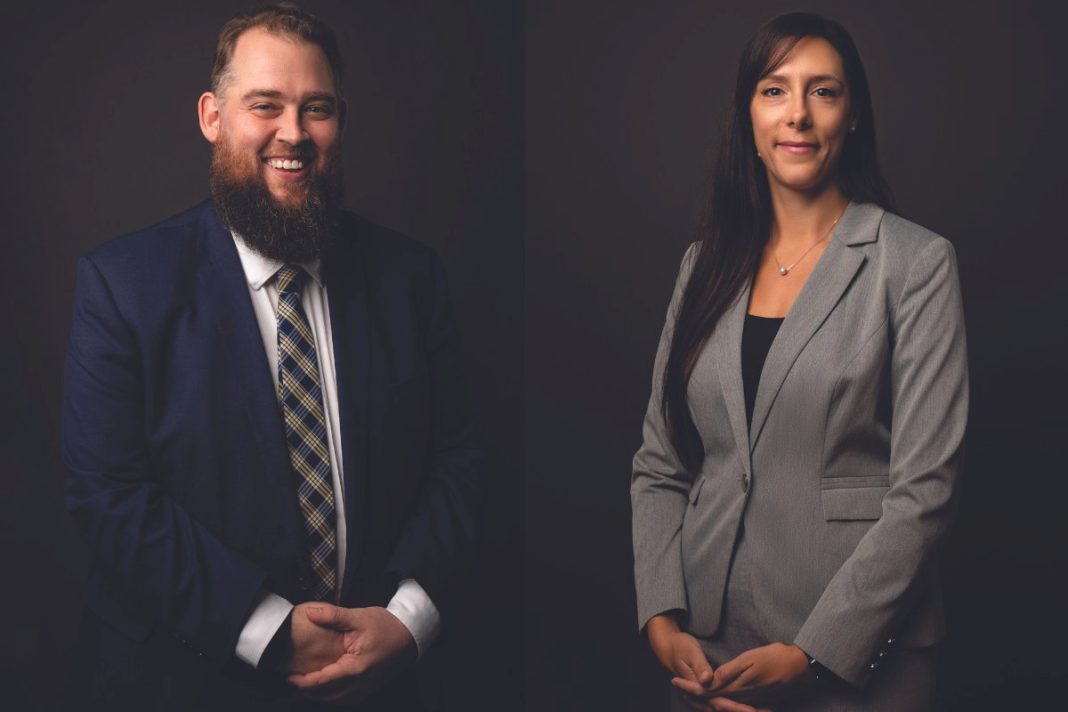For over 20 years, Blumers Personal Injury Lawyers have helped Canberrans through workers compensation claims ranging from psychological injury to banana peel slip and falls.
Solicitors Chris Gribble and Shaynee Dennis explain the first steps to take if you suffer a work injury.
“Unfortunately, people can be injured in almost any job,” says Chris. “It can be physical, or psychological injuries from stress, workplace bullying, or trauma.”
“It’s not just your one on-the-day slip either,” adds Shaynee. “It can be wear-and-tear that accrues over time, and it may take a while for you or your employer to realise it’s work-related.”
If, after any period of time, you realise something is not quite right, the first step is always to seek medical attention.
“And don’t panic. Know that there is a system to help,” says Chris.
“Seek appropriate treatment quickly, then get a workers compensation medical certificate from your GP,” says Shaynee.
Now it’s time to tell your employer. “It might sound a bit silly, but sometimes people forget to inform their workplace.
“But it is important to tell your employer because: 1) you may need a change in your work duties or time off, and; 2) legislation-wise, you have to tell them straight away, and likewise, they have to tell their insurance straight away,” says Chris.
“By law, employers have to have workers compensation insurance, and it should be displayed somewhere public where staff can easily see it, like in the lunchroom,” says Shaynee.
At what point do I need a lawyer?
“When making a workers compensation claim, you are entitled to your average weekly earnings, your treatment expenses, and there’s also a claim to be made for permanent impairment.
“Meaning, if a doctor says you’ve lost 30 per cent of the use in your hand, you’re entitled to a lump sum for the decrease in overall quality of life,” advises Chris.
“In the absolute best-case scenario, the only time you will need a lawyer is to sign off on a certificate saying the claim is not manifestly inadequate.
“Unfortunately, there’s often a dispute along the way; maybe the insurer refuses to pay for some of your treatment, or the claim gets rejected because they’ve determined you’re fine or it’s not related to work,” says Chris.
“Or an employer may be trying to pay for it directly without calling upon an insurer,” says Shaynee.
When that happens, call Blumers
“Let us do the stressing and focus on recovery,” Chris says.
Navigating the nitty gritty of the legal system can be highly stressful, particularly if you have just suffered a debilitating injury.
“Insurers do this all day, every day, whilst most people making a claim have never done this before,” he says. “At Blumers, we can help navigate those stormy waters.”
FAQs
Am I going to get fired?
“It’s unlikely,” Shaynee says. “Insurers will generally encourage an employer to maintain that relationship and work together with the injured worker to either make adaptations to their responsibilities or allow reduced hours.”
“The vast majority of employees want to get better and go back to work, and the vast majority of employers want to have them back at work, so you shouldn’t be fired just for putting in a claim,” says Chris.
“Similarly, with getting a lawyer, it’s your right to have a lawyer help you understand a system that people go to universities for years to learn about.
“Most people worry that their workplace will think less of them for getting a lawyer, or that it will make the fight worse.
“In reality, it helps smooth the process in that, instead of the employer and the employee trying to sort it out themselves, the interaction is kept between us and the insurer.”
What if it’s not that big a deal?
“People often feel like they’re wasting everyone’s time. The general attitude is ‘she’ll be right,’” smiles Shaynee.
“Or they’re told that their insurer will pay for it, then a year or two passes without any updates.
“It’s important to make a claim as soon as you can, but it’s extra important to make sure it’s done within three years from the injury,” says Chris.
“Memories fade,” says Shaynee. “You might not remember exactly what you were doing on the day, one or two years later, so it’s important to put pen to paper as soon as possible.”
Should I just quit?
“Don’t quit! That is a huge one,” says Shaynee.
“Don’t resign. Sometimes clients come to us and say, ‘I got this injury, and it wasn’t really working out, so I quit as a nice thing to my employer’ – but that can affect their entitlements.”
“When you formally quit, it can be viewed as turning down work, which can work against you down the line,” says Chris. “If they do terminate you, there are processes to help, but it’s better if you don’t accidentally make that step.”
If you have suffered any kind of personal injury at work, it’s important to know your rights before deciding what to do next. Blumers’ first consultation is free with no obligation. Find out more at blumers.com.au
Blumers
- Level 12, 15 London Circuit, Canberra City
- Mon – Fri 8.30am – 5pm
- blumers.com.au
- [email protected]
- (02) 6208 2600
For more information on sponsored partnerships, click here.



